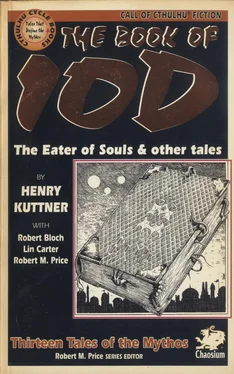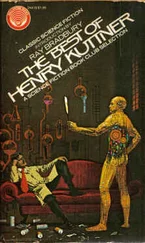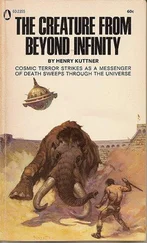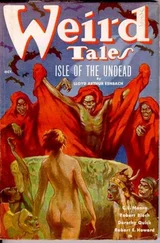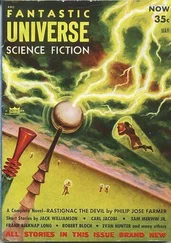Henry Kuttner - The Book of Iod
Здесь есть возможность читать онлайн «Henry Kuttner - The Book of Iod» весь текст электронной книги совершенно бесплатно (целиком полную версию без сокращений). В некоторых случаях можно слушать аудио, скачать через торрент в формате fb2 и присутствует краткое содержание. Год выпуска: 1995, ISBN: 1995, Издательство: Chaosium, Жанр: Ужасы и Мистика, на английском языке. Описание произведения, (предисловие) а так же отзывы посетителей доступны на портале библиотеки ЛибКат.
- Название:The Book of Iod
- Автор:
- Издательство:Chaosium
- Жанр:
- Год:1995
- ISBN:9781568820453
- Рейтинг книги:5 / 5. Голосов: 1
-
Избранное:Добавить в избранное
- Отзывы:
-
Ваша оценка:
- 100
- 1
- 2
- 3
- 4
- 5
The Book of Iod: краткое содержание, описание и аннотация
Предлагаем к чтению аннотацию, описание, краткое содержание или предисловие (зависит от того, что написал сам автор книги «The Book of Iod»). Если вы не нашли необходимую информацию о книге — напишите в комментариях, мы постараемся отыскать её.
The Book of Iod — читать онлайн бесплатно полную книгу (весь текст) целиком
Ниже представлен текст книги, разбитый по страницам. Система сохранения места последней прочитанной страницы, позволяет с удобством читать онлайн бесплатно книгу «The Book of Iod», без необходимости каждый раз заново искать на чём Вы остановились. Поставьте закладку, и сможете в любой момент перейти на страницу, на которой закончили чтение.
Интервал:
Закладка:
“While your uncle’s health has declined?”
“In seven years, he shrank and dwindled into an old man, frail and fearful. It is not a physical thing, I am sure; the family doctor assures me that it is merely nerves. As I have mentioned, he refuses to consult a psychiatrist. Even a priest; I am a good Catholic, I hope. My uncle is indifferent to the Church; he supports it but rarely attends. He has not been to confession in more years than I can remember. Sometimes, I fear for his soul.”
“Tell me more about his fear of the dark.”
“It sounds absurd and childish, doesn’t it? But to him the peril is horribly real. In the daylight hours he is normal enough, takes meals with me, talks, even jests. But when twilight nears, Uncle commands the servants to close the drapes over every window, and to light every light. Then he retires to his own quarters. He is armored against the darkness by powerful electric lamps contrived in such a manner that no corner is shadowy. He detests even shadows. And he lives in constant dread of a power failure; every room of the house contains dozens of candelabra and flashlights with fresh batteries. It is a fearful thing to see a grown man cower before night-fears—”
“How does your uncle pass his time?”
“In research; he digs through old, moldering books; he writes to scholars all over the world, he is in constant touch with great libraries—to be honest, sir, I have no notion of the nature of his research. We never talk of it—but he is horribly afraid of something —it is almost as if my uncle had somehow incurred the wrath of some demon of the darkness, and clings with frail hands pitifully to the light.”
Zarnak made a small notation in his careful hand.
“What became of the relics which your uncle discovered in the Indian burial mound?” he asked quietly.
“He has them with him. Keeps them in his rooms. He clings to them, seems to cherish them,” said the girl.
“I see. Is there anything else you can tell me?”
Dona Teresa thought for a moment. “Perhaps, Doctor, but whether it’s of any value or not—anyway, before Uncle sold the ranch, we had a priest staying with us. He was of pure Indian blood, of a race descended from the Mutsunes. I’ll never forget how violently agitated he became when he discovered that Uncle had disturbed the mound, and brought the artifacts to light—he was transfixed with horror, as if of a sacrilege or the exposure of some dreadful danger.”
“Was there any one of the artifacts in particular that seemed to alarm him?” inquired Zarnak.
The girl considered. "Yes; the tablet or pectoral of black obsidian. I remember how he stared at my uncle in frozen shock, and what he said. It was—‘You dared expose this thing to the light of day?’ And then he went into a sort of Indian chant, repeating one name or phrase over and over, swaying to the rhythm of the sound.”
“Can you recall what the phrase was?”
The young woman shuddered. “I certainly can! It made a frightful impression on me at the time. Three sounds, repeated over and over —‘Zoo, Chee, Khan… Zoo, Chee, Khan…
Zarnak made a notation, then rose and pulled a bell cord.
“I will visit you and your uncle tomorrow morning. It might be better for you not to address me as ‘Doctor’, since Don Sebastian seems adverse to such; while I have a doctorate in psychology, I am not a practicing analyst. Best, however, not to arouse his emotions. Introduce me merely as an antiquarian and amateur collector of antiquities; you may have seen my small collection and it will be no lie. My Rajput servant, Ram Singh, will call you a cab. Good evening.”
Once the young woman had left, Zarnak studied his notes with a thoughtful expression on his sallow visage.
Under the name she had repeated, which he had written down in phonetics, he added a brief notation.
Zulchequon?
3. The Black Tablet
Despite the darkness, for night fell early during these seasons of the year, it was not too late for Zarnak to make a few phone calls. From an anthropologist friend who was an expert in American Indian cultures, he learned that the Mutsune tribe were related to the Zuni Indians, and that their culture was obscure. Little was known of their beliefs, as they were extinct in California, but they were known to have feared a demon whom they called Zu-che-quon; even less was known of this dark demon, but another call to an old friend who was on the staff of the library of Miskatonic University in Massachusetts recommended that Zarnak consult, if at all possible, the Book of Iod for information on this demonic entity. The text itself was fabulously rare; only one copy was known to exist, and it was in the translation by one Johann Negus, from which the translator had rigorously excised many fearful matters of which he deemed it better that mankind remain mercifully unaware.
A work of such rarity was not in Zarnak’s private collection, although many other obscure and suppressed volumes were. However, Zarnak took down a lengthy manuscript indited by several different hands over many generations, bound in snakeskin. The book consisted of excerpts copied from many little-known texts, and one of these was the Book of lod . The quotations had been copied from the only extant copy of the book, preserved in the locked shelves of the Huntington Library of California, and the copyist had been a man named Denton, whom Zarnak had known many years before. He read:
The Dark Silent One dwelleth deep beneath the earth on the shore of the Western Ocean. Not one of those potent Old Ones from hidden worlds and other stars is He, for in Earth’s hidden blackness He hath always dwelt. No other name hath He, for He is the ultimate doom and the undying emptiness and Silence of Old Night…
There was more in this vein; Zarnak read on, skipping quickly, until a passage near the very end of the excerpt arrested his attention with a sudden chill of menace:
…He bringeth darkness within the day, and blackness within the light; all life, all sound, all movement passeth away at His coming. He cometh sometimes within the eclipse, and although He hath no name, the brown ones know Him as Zyshakon.
They knew him anciently in elder Mu, and in Xinian under the Earth’s crust, they worshipped Him in strange ways by the ringing of certain small, terrible bells, as Eibon telleth. He feareth nothing more than the light of day, which He abhors, but even artificial light is enough to drive Him down whence He came. He is the Bringer of Darkness, the Hater of Day, and Ubbo-Sathla was His Sire. As a crawling clot of darkness, and as a writhing of clotted shadows shall ye know Him.
A note in Denton’s hand explained that the last eighty-nine words of this excerpt were deleted from the expurgated copy of the
Huntington Library, and had been found in a citation by Von Junzt, who had obviously enjoyed access to the uncensored text.
Zarnak closed the manuscript volume and replaced it on the shelf, brows furrowed in deepest thought.
The next morning, Doctor Anton Zarnak travelled by taxi uptown, to the residence of Don Sebastian de Rivera and his niece. The cab drew up before a handsome building on a quiet street lined with old beech trees. When a butler, apparently of Hispanic descent, answered the bell, Zarnak identified himself and was ushered into a sunlit parlor where Dona Teresa awaited him.
“My uncle will be down to breakfast at any moment,” the girl said. “Surely you will join us?”
“For coffee only,” Zarnak smiled. “I have already eaten. I prefer my coffee black, with no sugar, please.”
A pretty Mexican maid named Carmelita served them both. Silver dishes on the sideboard held steaming bacon, sausages, scrambled eggs, toasted muffins. A frosted decanter held freshly squeezed orange juice. The coffee was a superb blend of Columbian beans.
Читать дальшеИнтервал:
Закладка:
Похожие книги на «The Book of Iod»
Представляем Вашему вниманию похожие книги на «The Book of Iod» списком для выбора. Мы отобрали схожую по названию и смыслу литературу в надежде предоставить читателям больше вариантов отыскать новые, интересные, ещё непрочитанные произведения.
Обсуждение, отзывы о книге «The Book of Iod» и просто собственные мнения читателей. Оставьте ваши комментарии, напишите, что Вы думаете о произведении, его смысле или главных героях. Укажите что конкретно понравилось, а что нет, и почему Вы так считаете.
